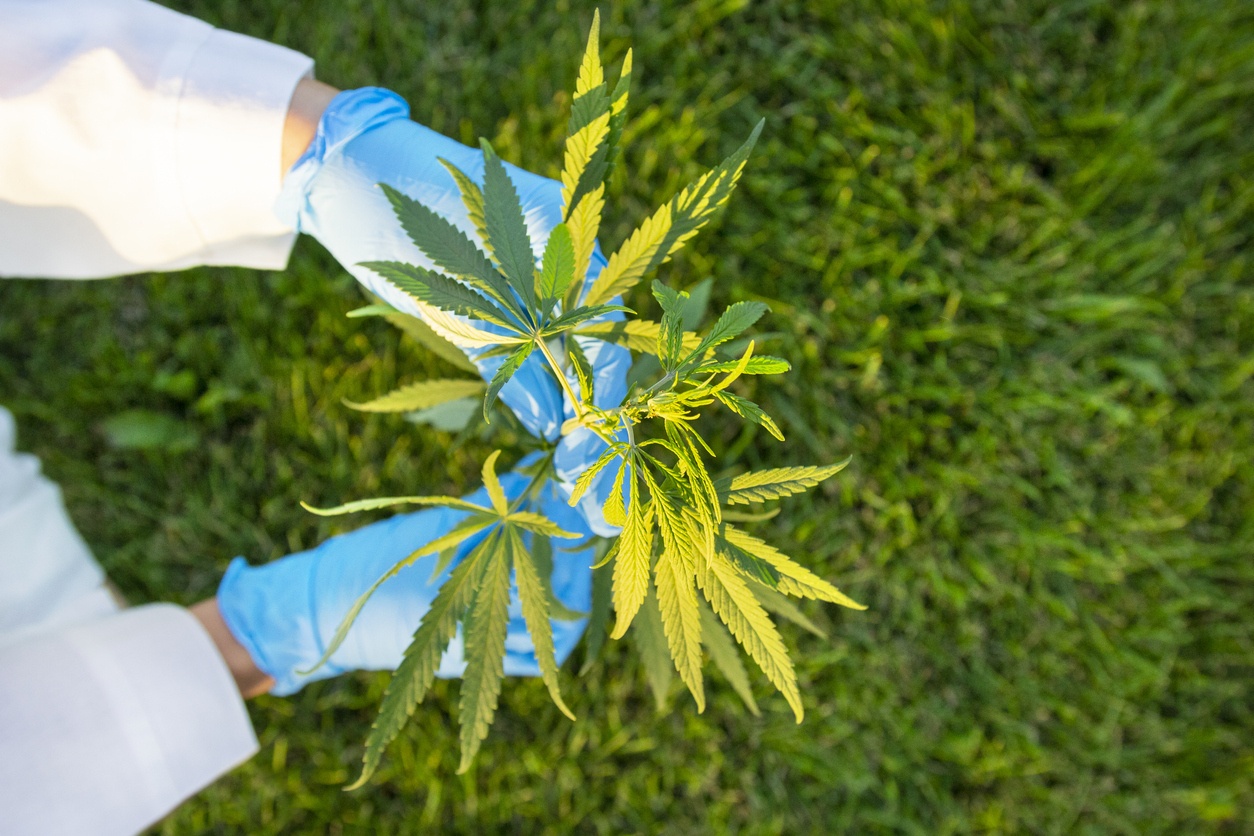Now that the world is finally moving past the idea of reefer madness, you may have noticed cannabis products popping up in places that have historically been no friend to the pothead. Supermarkets, spas, even airport kiosks are all hopping on the canna-train with everything from hemp water to personal lubricants infused with cannabis. Practically overnight, brands seem to be popping up with their own take on cannabis creativity, and while this rapidly expanding market is great for cannabis lovers and producers alike, it can be pretty difficult to find products that are actually worth their price tag. There’s a surprising amount of science tucked into those little green buds, and understanding it is key not only avoiding dupes and scams but also to finding the right product for your need.
First off, let’s get our vocabulary straight: Cannabis sativa is a member of the Cannabaceae family of plants, which also includes hops and hemp. There are also two other species of cannabis known as Cannabis indica and Cannabis ruderalis, though there is some dispute as to whether or not these are their own species or are actually sub-species of Cannabis sativa. All members of the Cannabaceae family contain chemicals known as cannabinoids, natural chemical compounds which interact with cannabinoid receptors located on the surface of our braincells. What these effects are depends on the area of the brain that is involved and can include the perception of pain, pleasure, and hunger as well as your memory, cognition, and even motor skills. That being said, not all cannabinoids are psychoactive, which is to say not all cannabinoids will get you “high”. Instead, it’s only specific cannabinoids which have this effect, other cannabinoids can trigger entirely different responses in the body – we’ll get into those in minute. Hemp contains the same psychoactive cannabinoids as Cannabis sativa, though hemp does not contain them in high enough concentrations to have any sort of psychotropic effect, and even hops having a mild relaxing quality in concentrated infusions. Cannabis also contains compounds known as terpines or terpinoids, scent-producing compounds that occur naturally in many plants and even some insects. These scent particles are responsible for the classic skunky funk associated with cannabis and more recently have been found to have a much larger impact on the potency of certain cannabinoids than previously thought. While fascinating on their own, we’ll mostly be focusing on CBD, so we won’t get too far into the nitty gritty of terpines and their effects, but they are definitely a fascinating and expansive part of cannabis science. For now, we’re going to look a little more closely on the things that make cannabis both medicinal and controversial: cannabinoids.
Like we said before, cannabinoids are naturally occurring chemical compounds present in both hemp and cannabis. All cannabinoids have some kinds of interaction with the brain, but only certain cannabinoids are psychoactive – the most well-known of these is tertrahydrocannabinol or THC, as it is commonly abbreviated. Cannabidiol (also known as CBD) is also a cannabinoid, but unlike THC, it isn’t actually psychoactive. Instead, CBD has shown tremendous promise as a treatment for anxiety, as a pain-reliever, an anti-inflammatory, and even an anti-seizure medication; to understand why this is, we have to look a little more closely at the natural human systems built to interact with cannabinoids produced by the body, known as the endocannabinoid system. This system of endogenous (i.e. produced within the body) cannabinoids, cannabinoid receptors, and enzymes are vital to the maintenance of human health and have been a part of the human animal since time immemorial, regardless of whether or not a person ever actually has consumed cannabis. The receptors serve to regulate the release of certain neurotransmitters, effectively making them the “traffic cops” of the synaptic world and giving them the ability to precisely regulate what synaptic signals are being received by their cells. The highest concentrations of these receptors are located in areas of the brain which are vital to higher functions like memory, learning, decision-making, and emotions, making the endocannabinoid system an essential and nearly ubiquitous part of the greater nervous system.
CBD and other cannabinoids work by mimicking the endocannabinoids naturally present in our bodies and binding with those receptors in the brain; however, unlike the endocannabinoids produced by our bodies, cannabis consumption floods our bodies with far high concentrations of cannabinoids than we can produce ourselves, amplifying and potentially improving the natural functions of the endocannabinoid system. Though there is still limited research on the subject, scientists think that this is why CBD has such a powerful medicinal effect particularly with regard to nerve pain and seizures – there’s just something about the way CBD interacts with the endocannabinoid system helps to prevent faulty communication between neurons. While CBD itself produces no psychotropic effects, studies have shown that is actually most effective when taken in combination with a small percentage of THC. Again, the research on why this could be is limited, but it is well-known that THC helps to boost the medicinal effect of CBD; in turn, CBD helps to mitigate the psychotropic effect of THC while also reducing the anxiety that can sometimes occur with cannabis consumption. CBD also has never been shown to have any sort of addictive qualities, though it can cause nausea and irritability when taken in high dosages, and it is currently being studied as a potential treatment for a range of neurological, physiological, and psychological diseases.
With the de-stigmatization of cannabis has come a new wave of interest in the potential of cannabinoids like CBD and THC, which in turn has led to an impressive array of products. These products range from topical creams to concentrated pills, but each claims to offer some kind of cannabis-based relief or assistance. Since the mainstream cannabis industry is still in its infancy, regulation of cannabis products is difficult and often down to the discretion of the dispensaries or stores which end up carrying them; fortunately, there are ways to shop smart with CBD supplements. First, look for dark or light-resistant packaging. CBD degrades rapidly when exposed to light, so high-potency concentrations can be rendered useless if exposed to direct light long enough – keeping your CBD in the dark is crucial to getting your money’s worth. Next, separating and stabilizing CBD is still a fairly technical and thus expensive task, so make sure the concentration of CBD in a product is worth the pricetag. Though there is still little science on dosing CBD, the current accepted baseline for CBD supplements seems to be about 15 milligrams per day. Anything less than this will have no noticeable effect. Finally, as with any supplement, consider what you actually need from your CBD regimen. Are you looking to support the overall health of your endocannabinoid system or looking for help with specific complaints? If you take medication, you will also want to consider the potential interactions between them and CBD supplements.
As the research on cannabis expands and the fear of cannabis decreases, so too will the fantastic potential of CBD and other cannabinoids. From mental to physical health, the implications of CBD-based treatments are vast and endlessly promising, and we couldn’t be more excited about it. Our excitement extends straight into our stores, and we are proud to be carrying a variety of CBD supplements in every Oliver’s Market. This week, feel the CBD-love and stop in for great discounts on Shikai’s entire line of CBD topicals. Made with the highest quality ingredients and isolated CBD particles, they’re perfect for relieving pain due to arthritis, injury, or other chronic complaints – for a full look at their products, check out the companion blog here!


No comments yet. Add the first comment